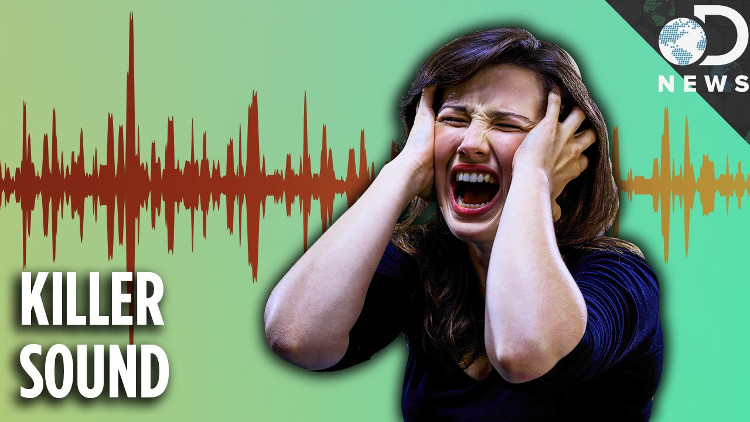Can sound waves kill you?
Will sound waves be enough to kill a person? That is the question of scientists and especially fans of sci-fi movies .
In "The Calculus Affair" , one of Hergé's classic Tintin comic books, Professor Calculus created an extremely dangerous sound device (a hostile government kidnapped and forced him to do it. This) and is used as a weapon. Malevolent military strategists attempt to destroy the entire city with intense explosions. Fortunately, the good friends of Calculus, the adventurer reporter Tintin and his colleagues, Captain Haddock, rescue the professor and break the evil plot in time.
But is there a scientific element behind this fantasy story? Sound can really kill people? And if so, how does it happen? The sound is caused by the pressure going through the environment, like air. These waves can also travel through solids and liquids, meaning they can also move through the body. Theoretically, if you can create enough pressure, you can cause some damage.

Humans can only hear sound waves from 20 to 20,000 Hz.
According to HowStuffWorks, two main measurements when it comes to audio are decibels (dB) and hertz (Hz). A decibel is a unit of sound intensity, while hertz refers to the frequency at which sound waves move. Normal conversation occurs between 50 and 65 dB. A lawn mower runs about 85 to 90 dB, while a jackhammer (drill) increases noise by up to 110 dB, and a nearby jet engine puts you at about 140 dB.
People can only hear from 20 to 20,000 Hz , but sound waves can still affect us below that threshold. If you sit in front of the subwoofer at 19 Hz, even with a volume of up to 100 dB, you won't hear anything - but you will feel vibration.
In fact, at 19 Hz, your eyes start to vibrate because that is the resonant frequency of the eyeball. If you are exposed to 177 dB sound waves at a rate of 0.5 to 8 Hz, it may begin to affect the beating of the lungs, making breathing difficult and shaking joints. Short-term exposure can damage your joints, but the effects of chronic exposure may include nausea and poor vision.
Outside the environment, sound waves disperse and dissipate too quickly to reach a dangerous level. That did not prevent researchers from investigating the use of sound as a weapon. For example, they calculate that 240 dB sound is likely to make your head explode. However, it is not easy to create such sound intensity. Even in a centralized environment, the European Space Agency (ESA) can only produce sounds of about 154 dB.

For non-lethal purposes, sound weapons are really useful.
But for non-lethal purposes, sound weapons are really useful. For example, you want to prevent a Somali pirate boat from taking part in your trip. Try turning on your trusted $ 30,000 long-range audio device (LRAD) and let it emit 150 dB sound to the surroundings. It can cause hearing loss in humans within 300 meters.
In other words, it is almost impossible (more precisely, not easy) to produce sound waves with enough intensity to kill a person instantly. However, high-intensity sounds can affect certain human abilities such as heart rate, hearing, lungs .
- Video: How do sound waves cause brain damage to US diplomats?
- Sound waves can lead drugs into the body to kill tumors
- Makes the matter fly with sound waves
- Avoid annoying noise with sound insulation
- Underwater sound waves can help tsunami warnings earlier
- Ultrasound 'magic' of dolphins can improve current medical techniques
- The sound of water drops
- Sound waves from Japanese earthquakes hit the universe
- Finding new sound waves accelerates the treatment of lung and diabetes diseases more than 60 times
- NASA missiles create sound waves that break down the rainbow
- For the first time the light is stored as a sound wave
- Device to adjust sound in the direction
- Australia developed artificial intelligence to decipher mysterious sound signals from the universe
 'Fine laughs' - Scary and painful torture in ancient times
'Fine laughs' - Scary and painful torture in ancient times The sequence of numbers 142857 of the Egyptian pyramids is known as the strangest number in the world - Why?
The sequence of numbers 142857 of the Egyptian pyramids is known as the strangest number in the world - Why? History of the iron
History of the iron What is alum?
What is alum?